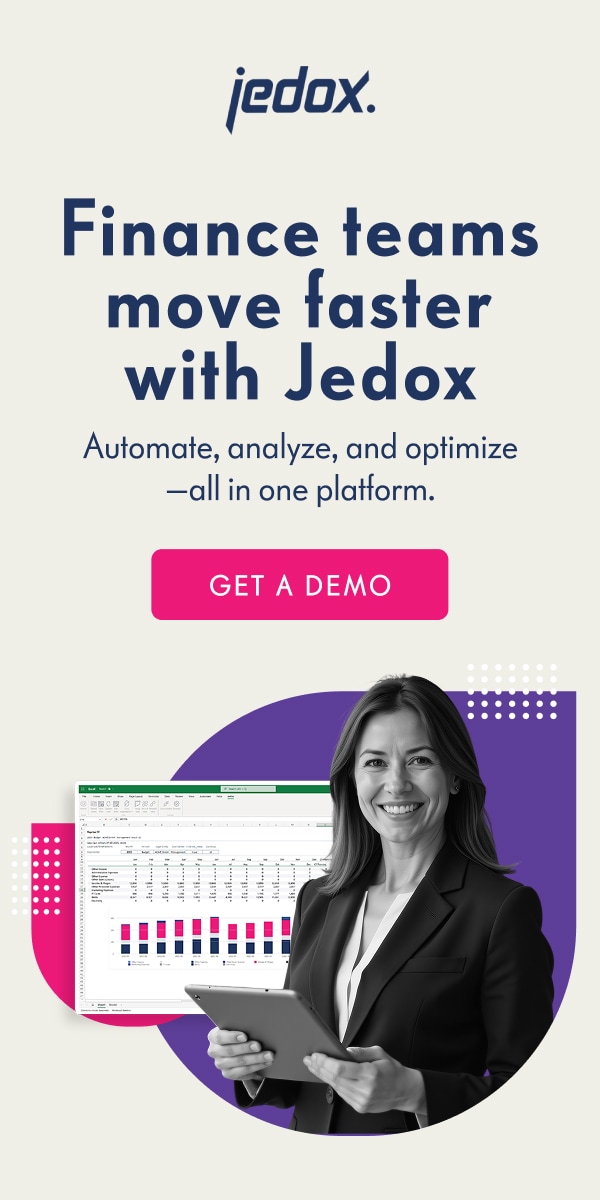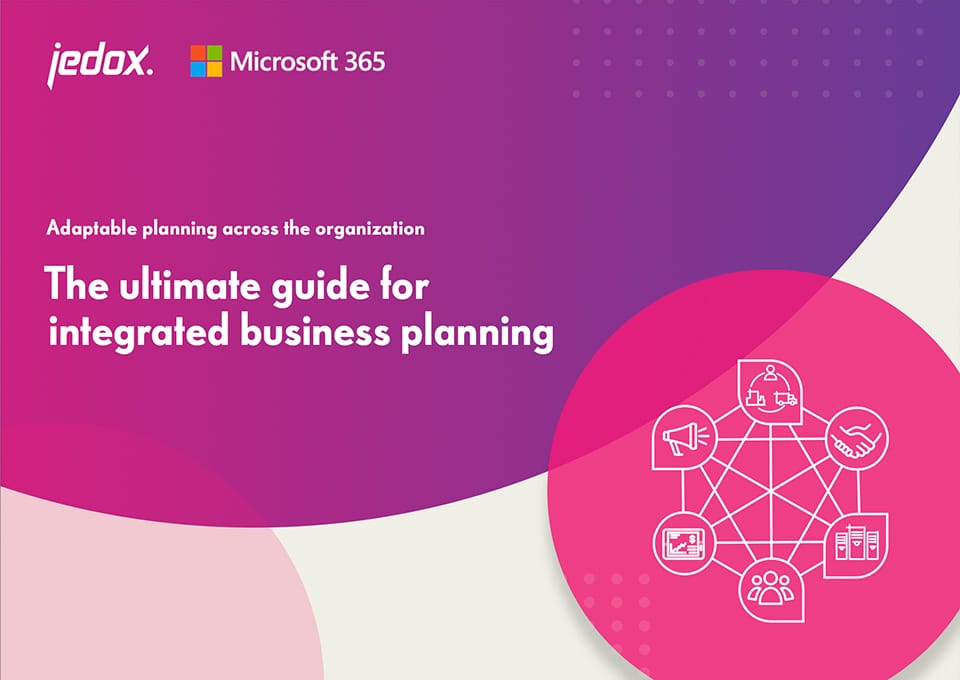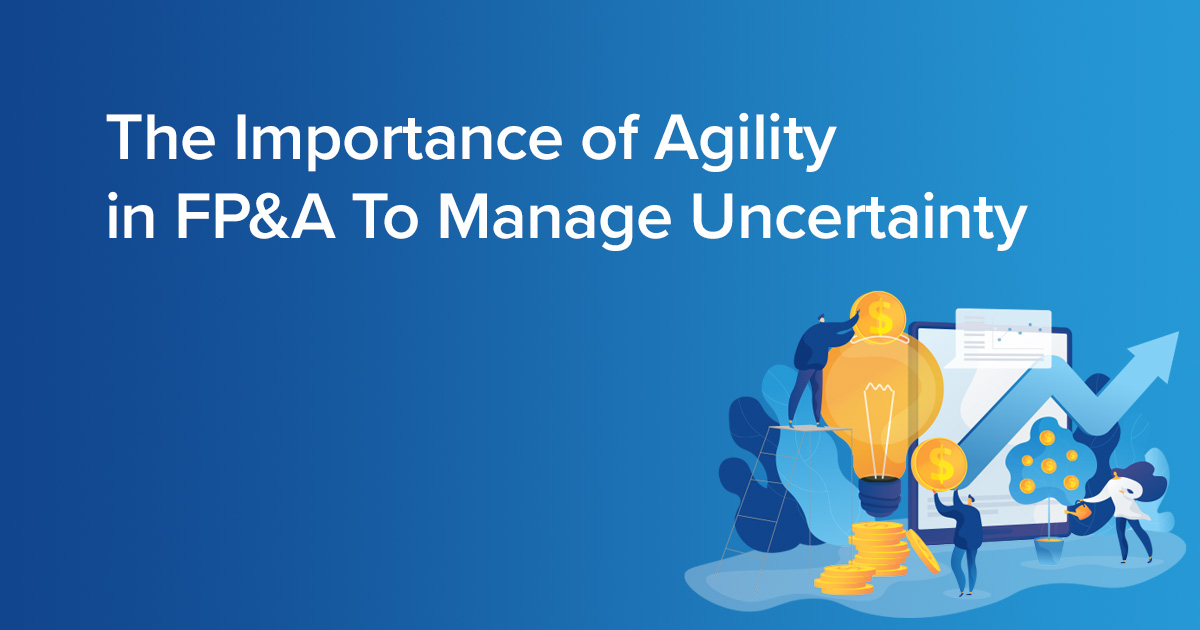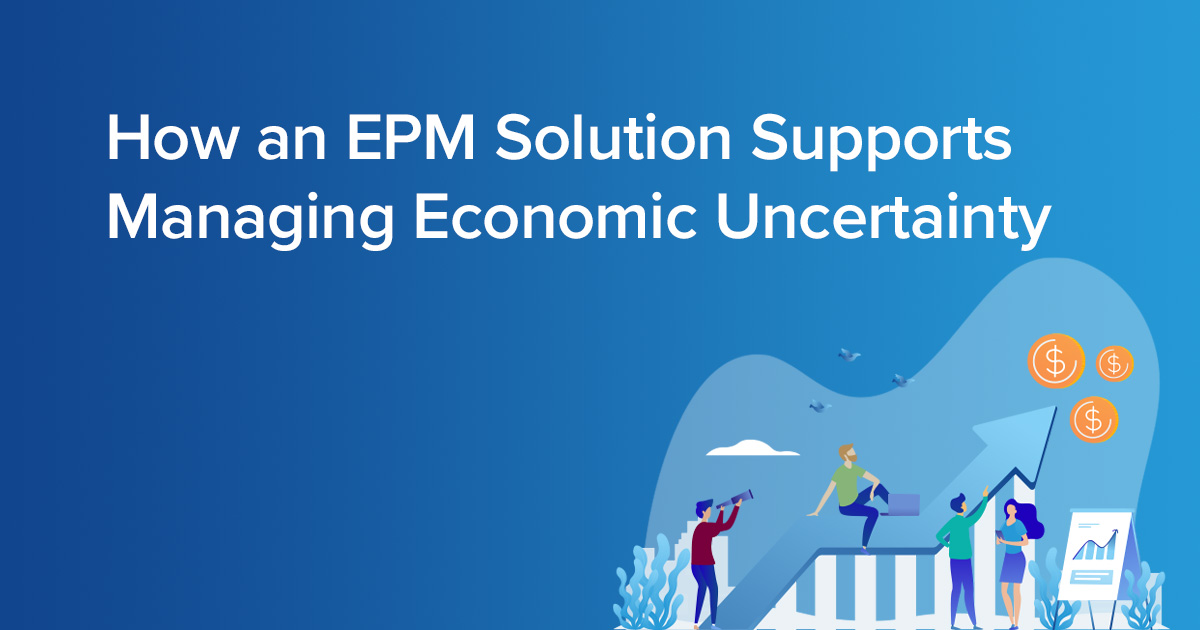
Leadership in an era of ubiquitous AI
- AI is a renaissance, not a plague
- Think of AI as a partner, not an adversary
- AI exploration favors a discerning, not dismissive, mindset
- AI can augment our humanity
- AI comes with its own biases, potentially more so than humans
- Three leadership characteristics to embody in an era of ubiquitous AI
- Conclusion
Jedox CTO, Vladislav Maličević, explores a fresh mindset and approach

Vladislav Maličević, Jedox CTO
Just a few months into 2023, the business world was jolted by an open letter1 from technology executives and top artificial intelligence (AI) researchers – including Elon Musk, Steve Wozniak, Danielle Allen of Harvard University’s Center for Ethics, and AI pioneer Yoshua Bengio – calling for a pause in the training of AI tools more powerful than GPT-4. They proposed that a moratorium of at least six months is required for the industry at large to set safety standards for AI design and avert the potentially harmful effects of some AI technologies. EU lawmakers have urged world leaders to hold a summit to find ways to manage the development of advanced AI tools such as ChatGPT. Organizations launching the tools will also have to disclose any copyrighted material used to train their systems, according to the latest draft of the AI Act, an EU agreement that may initiate the first comprehensive laws regulating the technology.
Opposing viewpoints, including that of Bill Gates, emerged around the same time, arguing that a pause would be impossible to enforce and, after all, there is great potential for AI technologies to be harnessed to reduce societal inequities.
Given the near ubiquitous presence of AI, are we viewing the dawn of a new era or hearing the siren call of the apocalypse? Can we even begin to define the terms of engagement so simplistically?
AI is a renaissance, not a plague
AI is not new but, with advancements in computing power, as Moore’s Law and legacy endures, I believe that society is at the beginning of an AI renaissance. Like the internet, generative AI is now becoming popular and democratized, ushering in a transformational tool exemplified by ChatGPT and its competitors. ChatGPT is generally available for use by anyone with an internet connection2, not just the wealthy and privileged.
People will use AI systems to create unimaginable things and uncover what no one thought possible. Even now, a 19-year-old with a laptop anywhere in the world could be the nascent Michelangelo of AI, crafting the technological equivalent of the statue of David. But often, the creative process includes destruction, which I and other technology executives fully acknowledge, along with the potential to be used for nefarious purposes. However, that doesn’t negate the fact that we are alive at a time when incredible things will be created, some beautiful and some not. Like humans, AI is here to stay and here to grow. How then can we safely embrace, explore, and leverage it to the betterment of humanity?
Think of AI as a partner, not an adversary
AI is neither good nor bad in itself; it simply is what it is, and the relationship between humans and AI is symbiotic. Think of AI as akin to an exoskeleton: it moves with you, it can support you, and it can protect you. But it has no purpose or function without you. Or, put another way, AI is the ultimate tool in your toolbox, but one that shouldn’t be used without understanding both its capabilities and limitations.
The end user of AI should always be human, and the systems leveraging it need human oversight to achieve their full potential. Perhaps there will be a time when we can take the output of ChatGPT at face value but, for now, we must explore its output, validate it, and continuously learn and grow from this process.
AI exploration favors a discerning, not dismissive, mindset
We must be discerning, not dismissive, when it comes to AI: it’s here to stay, so dismissing its presence or potential value really isn’t an option. This requires a specific mindset, one which I call a growth mindset, exemplified by discernment, not the dismissiveness of a fixed mindset. A discerning approach to AI, as to life, is one where we explore, question, validate, and then accept or discard the results. It’s far superior to the dismissive approach, wherein one ignores, withdraws from, or denies realities.
It’s easier said than done. As humans, we have a dangerous habit of taking things at face value, simply because it’s easier than rigorous examination. We also tend to dismiss information that doesn’t align with our biases. But we are also accountable for our thoughts, feelings, actions, and behaviors toward technology and each other. Perhaps AI will inspire a new phase of human evolution, where it will augment rather than replace deeply human characteristics such as empathy and critical thinking. Time is our most valuable resource, and the benefits of AI in maximizing our productive use of time are well established. Will we be discerning or dismissive when confronted with the opportunity to explore and deploy AI?
AI can augment our humanity
What I would call the foundational layers of technology already exist, and our fundamental technological “needs” have been met: so, what’s next? Now that we have the computing power to deploy AI at scale, generative AI represents an entirely new technological frontier. The data AI uses represents a vast collection of the artifacts of human history and, now that we can all casually interact with AI, it is a mirror that reflects us in a new light. Will we like what we see?
Humans have long explored technology. Now, AI can interact with and explore us, enabling us to explore our own humanity through the “eyes” of AI in new and mind-blowing ways. Given the ubiquitous presence of AI, I believe we will find ourselves discovering and leaning more into the characteristics that make us uniquely and distinctly human: for example, creativity, integrity, empathy, and our ability to think critically (just to name a few).
AI comes with its own biases, potentially more so than humans
We all have biases. History has been, too often, written by the victors rather than the vanquished, and shaped by the haves and not the have-nots, and it has reflected the views and desires of the privileged few rather than the masses. It isn’t exactly headline news that humans are inherently biased but, taken a step further, the human-originated data that feeds AI and the predictions or analyses it creates can, by default, also carry the risk of bias.
If we want AI to be unbiased, we need to give it all the data we have at our disposal, not carefully selected bits and pieces. Machines can enhance inequality if they only process selective information. How we use technology must reflect the values that lie at the heart of our organizations, and we must embed those values into work that creates business value.
As leaders, we must ask ourselves:
- What are our values as an organization? As a team? As individuals?
- How do our values apply to the tools and technologies that we are using to support our teams and fuel growth and innovation?
- Through what lens do I, as a leader, view the world?
- How can I be aware of my own bias?
The fact that AI carries risk of bias does not render it unusable; however, we must hold ourselves accountable to consider how AI may reflect or enhance bias.
“We must give our teams the time, resources, and safety they need to grow into more adaptable people: this investment benefits our teams, it benefits us, and it benefits our organizations.”
– Vladislav Maličević, CTO, Jedox GmbH
Three leadership characteristics to embody in an era of ubiquitous AI
As leaders, we must not only build, grow, and manage organizations but also inspire our teams to be the best versions of themselves as professionals and as people. It is also our responsibility as leaders to explore advanced technologies such as AI to fuel growth, increase efficiencies, and drive innovation. AI is increasingly augmenting our teams’ capabilities, and infringing upon their duties and responsibilities which, in a way, makes it a part of the teams we manage and lead.
I believe that authentic leadership is the only type of leadership that matters and resonates today when humans are increasingly surrounded and influenced by advanced technologies such as AI. Simply talking about a value set is not enough: as leaders, we must embody and demonstrate a value set with our words, our actions, and our behaviors. There are three leadership characteristics I personally strive to embody that can help leaders navigate their organizations through an environment in which employees, customers, and consumers increasingly leverage AI to achieve their full potential.
Leadership characteristic #1: adaptability
Adaptability is the ability to deal with change. We need to retire any expectation we may have that disruption will slow down, become easier to manage, or cease to exist, because it won’t. As individuals, we must recognize that having expectations is actually an attempt to control things (or people) we have little or no control over. “Expect the unexpected” is a commonly used phrase that we have heard a thousand times, but internalizing this concept and teaching ourselves to feel at peace when “the unexpected” arises takes work, self-awareness, and incredible open-mindedness and courage, because “the unexpected” can be scary.
Being an adaptable leader builds from being an adaptable person. We need to work on ourselves so we become true models of service to our stakeholders: our teams, our boards, our investors, and our customers. Helping others cope with change, and the disruption and chaos that it can bring to organizations, is a necessary and powerful act of service. It requires taking on new roles, exploring new technologies such as AI, and stepping outside of our comfort zones every day. We must also give our teams the time, resources, and safety they need to grow into more adaptable people: this investment benefits our teams, it benefits us, and it benefits our organizations.
A great example of adaptability is the new ChatGPT integration that one of our team leaders developed here at Jedox. The model allows users to leverage the power of ChatGPT without leaving the Jedox environment. He created the integration as soon as he saw ChatGPT take off, and we pushed it live soon thereafter.
Leadership characteristic #2: having a growth mindset
In a TED Talk with over 14 million views, Carol Dweck, a pioneering researcher and author in the field of motivation, explored the difference between the “fixed versus growth mindsets.” Well worth viewing, it echoed the conclusions of a Harvard Business School (HBS) overview that equated a growth mindset as one where abilities and talents are learnable and capable of improvement through effort. On the other hand, someone with a fixed mindset views those same traits as inherently static and unchangeable over time.
Emerging technologies such as AI and ChatGPT are inherently disruptive. It is not surprising at all that we often resist or fear these technologies, as our brains have evolved over millennia to seek safety and comfort, coherence, and familiarity. We are biologically programmed to resist change, especially when we perceive a threat is on the horizon. So what can we do about it? We must reprogram ourselves to resist our inherent resistance to change, and learn to embrace the future with optimism. This is the seed of a growth mindset: a mindset characterized as a willingness to learn and improve. At Jedox, having a growth mindset is one of our core values.
As leaders who want and need our teams to adopt a growth mindset, one of the most important things we can do is to create psychological safety among our teams. They must feel 100% confident they will not be penalized if they try something new and it doesn’t work out. They must be encouraged to question, re-evaluate, and disrupt routines and status quo while remaining empathetic to the needs of teammates and customers. Psychological safety is absolutely our responsibility to actively cultivate as leaders. It won’t cultivate itself.
My colleague and Jedox CMO Kevin Alansky often says: “Perfect is the enemy of great.” Perfection is an illusion, highly subjective, and should not be the goal to which our teams aspire. As leaders, we strive to ensure our teams do great work. That being said, we must encourage iteration and continuous growth, not perfection. Another way for leaders to cultivate a growth mindset is to create thought leadership. We must set aside time and resources to reflect, analyze, and think freely without constraints. We must equally encourage all voices and perspectives to come to the table in this regard, not simply the highest-ranking or most assertive people. Lastly, we must upskill our teams in both hard and soft skills, which requires sponsorship, buy-in, and budget at the executive level.
Leadership characteristic #3: curiosity
We have to “get to know” AI if we ever hope to trust it. Therefore, we must give ourselves permission to be curious about it if we want to get to know it. Being curious does not mean blindly trusting AI so much as it means learning about it, exploring its capabilities, and experimenting with it. Ask ChatGPT a question. Chat with a chatbot. In addition, ask yourself a few important questions such as:
- What can AI do for me?
- How can it help my teams?
- How might it impact my industry or profession?
- How are my competitors using it?
- What should I be on alert for?
As leaders, we must lean in, even if we perceive AI to be an existential threat. Let’s ask our teams what they think and how they feel about it, how they may be using it, and how they think it could impact them. Many people feel anxiety and fear around the topic of AI, so we must allow our teams to be transparent without fearing negative consequence. In doing so, we create a safe space in which our teams feel comfortable having these conversations openly. If someone on your team is enthusiastic, empower them to be an AI champion. It’s a fantastic upskilling opportunity.
In addition to leaning in, lean on your technology leaders and partners. Explore the art of the possible with them, especially on any AI-driven technologies you may be considering. Use people like me as a “gut check.” By recognizing, accepting, and embracing the possibility that there’s gold to be uncovered with AI, the need to think differently, and the right questions, will naturally follow.
Conclusion
Engaging with AI is no longer optional. ChatGPT has both shown and shocked the world, inspiring us to recognize how sophisticated and ubiquitous AI has become. Leaders who are adaptable and approach AI with curiosity and a growth mindset will be in a stronger position to navigate their organizations through an environment in which employees, customers, and consumers increasingly leverage AI to achieve their full potential.
Sources
1 Future of Life Institute, Pause Giant AI Experiments: An Open Letter, March 2023
2 ChatGPT, Conversation about who can use ChatGPT, May 2023










